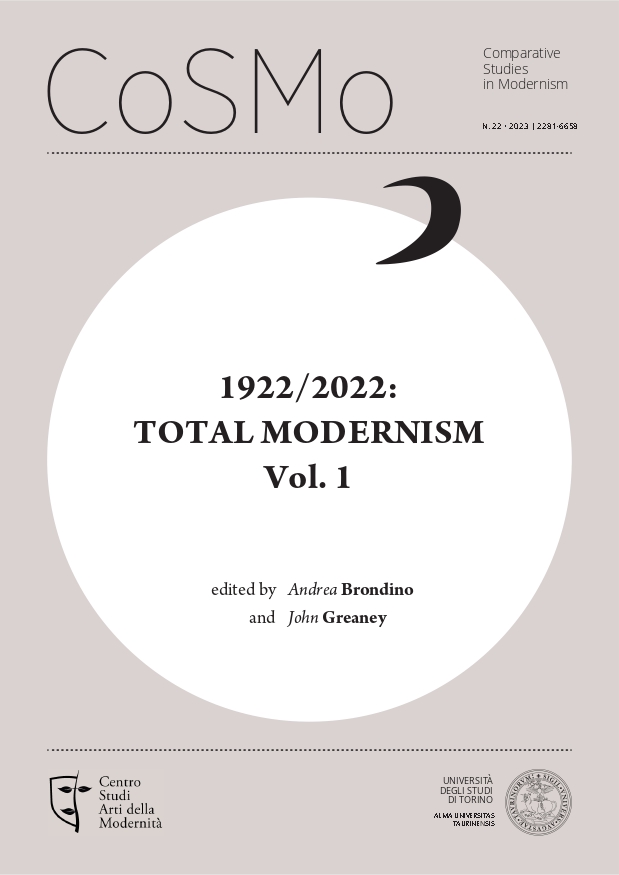T. S. Eliot and the Return of the Soldier
Re-gendering Nostos in “The Waste Land”
DOI:
https://doi.org/10.13135/2281-6658/7205Parole chiave:
T.S. Eliot, The Waste Land, Nostos, Return, Gender, The Great War, Shell Shock, AbortionAbstract
T. S. Eliot’s 1922 poem The Waste Land reimagines the theme of the soldier’s return in the wake of the Great War. In Part II of the poem (“A Game of Chess”), Eliot reveals the domestic crisis that the return of the demobilised soldier named Albert may cause. “A Game of Chess” is also concerned with the troubled homecoming of the unnamed, shell-shocked soldier who fought in “rats’ alley” by exposing the strain of psychological trauma on his married life. Drawing upon the literary trope of nostos (“homecoming”) that originates in Homer’s Odyssey, this article examines how Eliot’s treatment of the soldier’s return revisits the archetype of return from war in modern conditions. By examining the two passages constituting “A Game of Chess,” with a focus on relevant literary and cultural references, I investigate how the heroic, masculine narrative of nostos, homecoming in the classical epic tradition, is reframed in the domestic sphere associated with femininity.
Downloads
##submission.downloads##
Pubblicato
Fascicolo
Sezione
Licenza
Gli autori mantengono i diritti sulla loro opera e cedono alla rivista il diritto di prima pubblicazione dell'opera, contemporaneamente licenziata sotto una Licenza Creative Commons - Attribuzione che permette ad altri di condividere l'opera indicando la paternità intellettuale e la prima pubblicazione su questa rivista.







